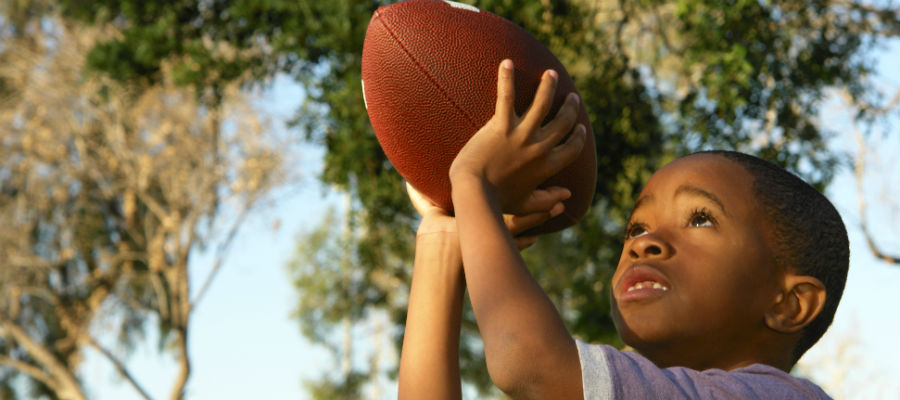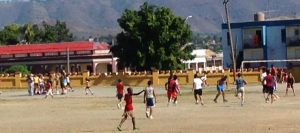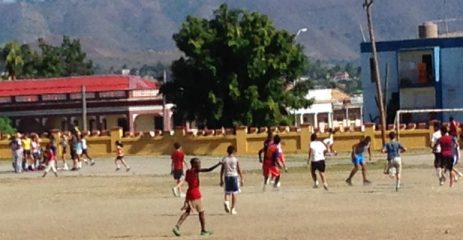By Joe Marro
 For decades, the U.S. has aimed to use sport as an effective aspect of diplomacy and cultural relations efforts with a view to establishing deep, meaningful relationships with local stakeholders.
For decades, the U.S. has aimed to use sport as an effective aspect of diplomacy and cultural relations efforts with a view to establishing deep, meaningful relationships with local stakeholders.
America’s use of sports diplomacy involves the work of influential athletes, local programmes and partnerships around the globe.
Sport has played an important role in developing America’s international image. This was evident in the American boycotts of some Cold War era Olympic Games, the work of Muhammad Ali, Kareem Abdul-Jabbar, Billy Jean King, Arthur Ashe and NBA stars like Kobe Bryant and LeBron James in China.
The Sports Diplomacy Division
 Shortly after the 9/11 attacks, President George W. Bush’s Administration created Sports United, now the Sports Diplomacy Division (SDD), to use sport as a way to conduct diplomatic outreach between the U.S. and countries in the Middle East.
Shortly after the 9/11 attacks, President George W. Bush’s Administration created Sports United, now the Sports Diplomacy Division (SDD), to use sport as a way to conduct diplomatic outreach between the U.S. and countries in the Middle East.
These efforts included sending U.S. athletes and coaches overseas as well as the Sports Visitor Program, which brings non-elite athletes and coaches to the U.S. for a training and development programme.
SDD made significant strides during the Obama Administration, including the creation of two new programmes aimed at increasing access to sport participation for women and girls and developing female emerging leaders in sport.
In a 2013 study conducted by Management Systems International and the Bureau of Educational and Cultural Affairs Office of Policy and Evaluation, 92% of respondents said that their views of the American people had improved after participating in SDD programming.
The Sports Diplomacy Division consists of several programmes which aim to use sports as a platform for addressing foreign policy priorities across the globe.
SDD programmes have been growing and enhancing their impact. In the period from 2010 through 2013, the Sports Visitor, Sports Grants, and Sports Envoy programs all experienced significant growth.
- The Sports Visitor Program increased their impacted countries by 229% and experienced a 142% increase in the number of Sports Visitor participants.
- The Sports Grants program’s number of participants from 2010-2013 was 85% of their total participants in the eight years prior.
- The Sports Envoy Program had 179% more coaches and players in this four-year range than the previous eight years and reached 59% more countries than reached from 2005 to 2009.
Using sport to tackle global issues
Sports and Gender Equality
The work of the SDD is critical in improving opportunities for girls and women to participate in sport around the world.
In 2012, the State Department partnered with espnW to establish the Global Sports Mentoring Programme, which pairs emerging international women leaders with leading American female sports executives.
SDD’s Women and Girls Through Sports Initiative works to engage with underserved youth, particularly girls, in order to increase sport participation levels, raise levels of self-esteem, and increase focus on access to quality education.
This presents an opportunity for female leaders to participate in a five-week mentorship in the U.S. and allows them to bring lessons back into their communities with a view to promoting and fostering the growth of more female sport leaders.
Sport and Global Health
Physical activity has been shown to be an important part of preventative strategies to address global health. SDD works to increase physical activity through programmes like the International Sports Programming Initiative (ISPI), which awards grants to U.S. non-profits working in 10 countries. This programme benefits both its international participants and U.S. non-profits, with 57 grants implemented through 38 different NGOs in the period from 2002-2009.
Since the programme’s introduction in 2002, there have been 862 Americans engaged in sport for development programmes overseas, and 1,462 foreign participants who have travelled to the U.S. to gain knowledge of the sport for change infrastructure.
Sport for Community
Since 2012, alumni from SDD’s “Sport for Community” programme have mobilised close to 5,000 volunteers and impacted nearly 100,000 people through sports workshops, clinics, and conferences at the local level.
The Sport for Community programme partners with the Center for Sport, Peace, and Society at the University of Tennessee (UTK) to deliver these services across the country.
These partnerships with Universities like UTK, as well as the University of Kentucky’s Global Centre for Sport Diplomacy are a sound method for delivering critical sport for development and social change programmes around the country.
These partnerships work to address pressing challenges both within the U.S. and abroad, in addition to serving a crucial role in helping to develop future leaders in the field.
American Professional Sports and Diplomacy
The United States Sports Diplomacy and cultural relations efforts also include harnessing the worldwide popularity of American sports leagues and athletes. In the past, athletes have visited countries where engagement with populations through traditional methods of outreach has proved challenging.
 In early 2016, the SDD brought stars like NBA Hall of Famer Shaquille O’Neal to Cuba to engage directly with Cuban youth and build upon the work of people-to-people exchanges. Sport is seen as a natural avenue for engaging Cuban youth and encouraging a closer relationship between the two nations in the decades to come.
In early 2016, the SDD brought stars like NBA Hall of Famer Shaquille O’Neal to Cuba to engage directly with Cuban youth and build upon the work of people-to-people exchanges. Sport is seen as a natural avenue for engaging Cuban youth and encouraging a closer relationship between the two nations in the decades to come.
These efforts can be replicated in countries where direct public engagement is needed to foster relationships.
Along these lines, the National Basketball Association has made significant progress in growing the game of basketball and the American basketball product globally, especially in Europe and Asia. In China, the NBA has worked with the Chinese Ministry of Education to administer a programme focused on basketball and physical fitness that it is anticipated to be taken up by some 2,000 schools across China.
The U.S. government has a unique opportunity to partner with U.S. based professional sport leagues like the NBA who have already made significant strides in growing their international influence. These types of partnerships help to advance U.S. cultural relations efforts abroad, deliver key services to countries in need, and, where appropriate, help in growing meaningful relationships with governments.
Where are we now?
Despite the many successes of the SDD and the proven track record of sport for development around the world, the current Administration has proposed wide-scale cuts to the State Department’s appropriations, the federal funding source for the Bureau of Educational and Cultural Affairs, of which SDD is a part.
Given the scope and impact of its programmes, the Sport Diplomacy Division boasts a significant return on investment, spending just .0001% of the State Department’s budget.
This month’s shakeup at the State Department, resulting in the ouster of Secretary Rex Tillerson and President Trump’s appointment of CIA Director Mike Pompeo as his replacement, raises several questions for America’s diplomatic strategy going forward.
Mr. Tillerson presided over and supported proposed deep cuts to the Department’s budget and diplomatic corps. The first fourteen months of the Trump Administration have demonstrated an expected move away from soft power, creating a cloud of doubt around the role of diplomacy, including sport diplomacy and it’s place in America’s foreign policy over the next three years.



